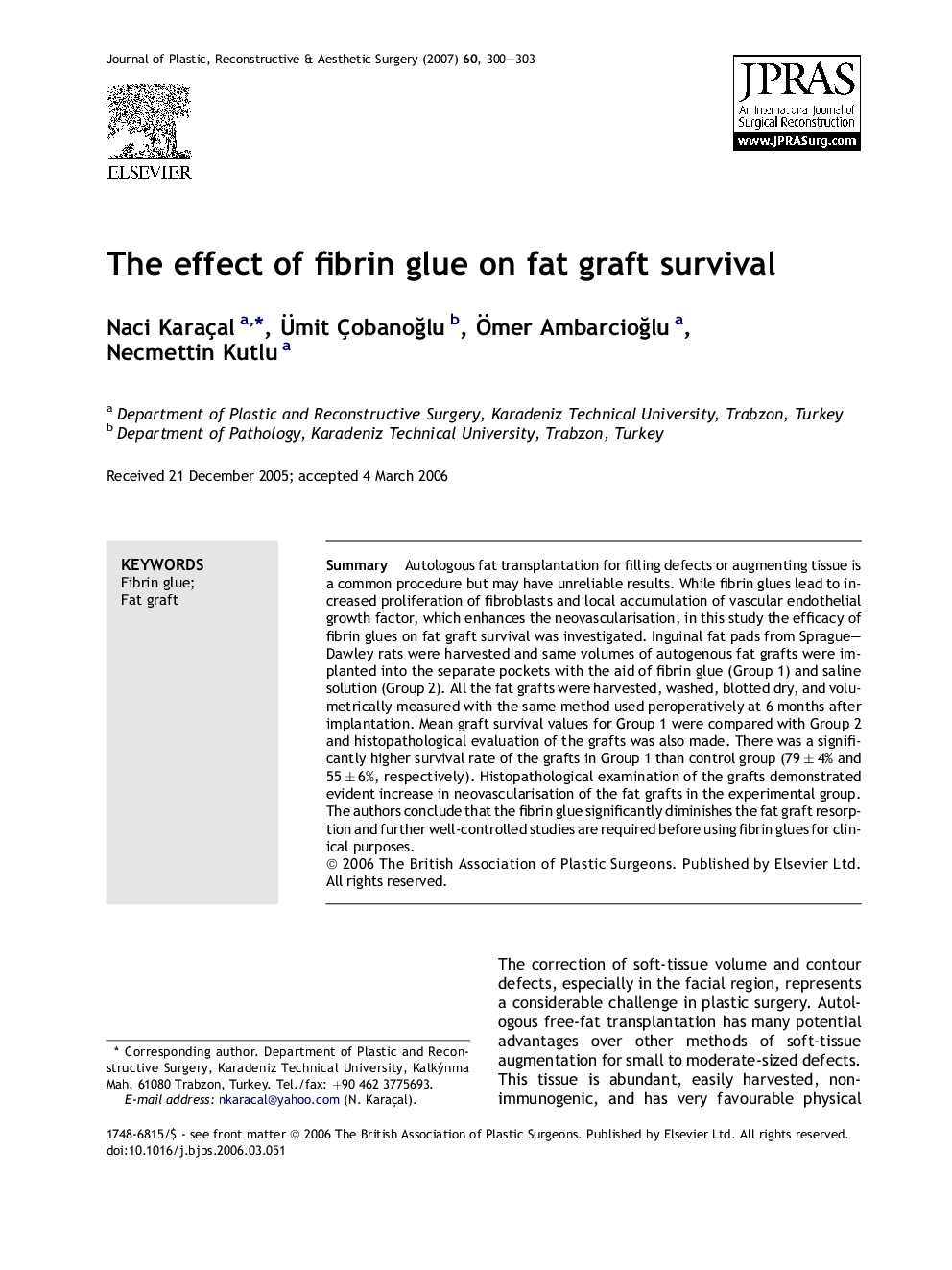| Article ID | Journal | Published Year | Pages | File Type |
|---|---|---|---|---|
| 4122347 | Journal of Plastic, Reconstructive & Aesthetic Surgery | 2007 | 4 Pages |
SummaryAutologous fat transplantation for filling defects or augmenting tissue is a common procedure but may have unreliable results. While fibrin glues lead to increased proliferation of fibroblasts and local accumulation of vascular endothelial growth factor, which enhances the neovascularisation, in this study the efficacy of fibrin glues on fat graft survival was investigated. Inguinal fat pads from Sprague–Dawley rats were harvested and same volumes of autogenous fat grafts were implanted into the separate pockets with the aid of fibrin glue (Group 1) and saline solution (Group 2). All the fat grafts were harvested, washed, blotted dry, and volumetrically measured with the same method used peroperatively at 6 months after implantation. Mean graft survival values for Group 1 were compared with Group 2 and histopathological evaluation of the grafts was also made. There was a significantly higher survival rate of the grafts in Group 1 than control group (79 ± 4% and 55 ± 6%, respectively). Histopathological examination of the grafts demonstrated evident increase in neovascularisation of the fat grafts in the experimental group. The authors conclude that the fibrin glue significantly diminishes the fat graft resorption and further well-controlled studies are required before using fibrin glues for clinical purposes.
